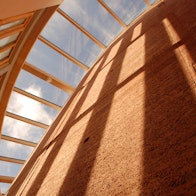
Develop a comprehensive understanding and confidence to apply sustainable design principles on our MSc in Green Building.
Achieving zero carbon in the design and building industry requires a transformation in materials and methods. This course equips students with critical thinking skills to effectively integrate green building principles into their work, projects, and professional practice, thereby enhancing their future employability in the sustainable construction or property sectors while learning to adapt the built environment to current environmental changes.
The course merges theoretical knowledge with practical hands-on learning and research experience in sustainable building design, construction, and renovation, enabling students to build scientific literacy, academic rigour, and teamwork skills, construct evidence-based arguments, and gain proficiency in research methods to undertake an advanced independent project.
Students will acquire a holistic understanding of sustainability, incorporate risk and vulnerability assessment into their decision-making, and comprehend how the urgency of climate change influences their choices regarding building design, construction methods, materials, and cultures.
Key areas of study
Through the Green Building course, you will gain an in-depth understanding of sustainable design principles and their practical application, best-practice construction methods and standards, evidence-informed approaches, and socially and ecologically responsible practices.
Some of the topics you’ll study include:
- Transformational change, resilience building, and adaptive capacity
- Advanced building analysis and construction techniques
- Heat and moisture flows in buildings, zero carbon building standards, and methodologies
- Circularity applied to building project management and the building project life cycle.
- Environmentally responsive materials, resources, and life-cycle analysis / environmental assessment
- Acute resilience pathways for cities and communities
- Renewable energy systems
- Biodiversity enhancement in buildings and cities and ecosystem services provision
- Environmental politics and the prevailing social and economic systems
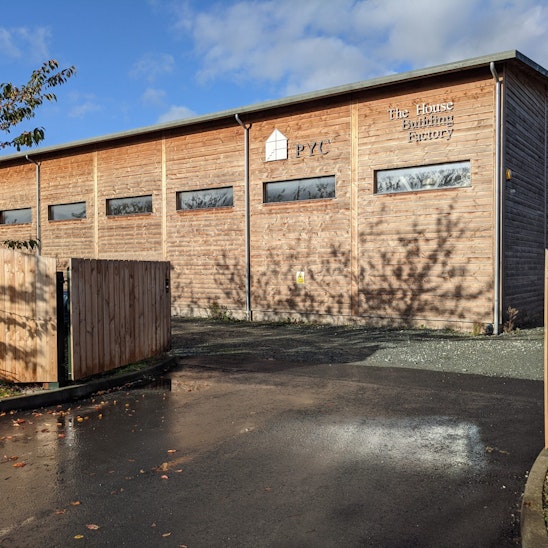
CAT Stories: Guillermo Fernández Camacho
Guillermo had a background in architecture and refurbishing historical buildings in Spain before his studies at CAT yet he felt he lacked the technical knowledge to tackle environmental issues in his work. To fill this knowledge gap he chose our Green Building course and after graduating in 2021 he now works at PYC a sustainable construction company based in mid-Wales.
Modules
When studying this course as an MSc you will need to study the two introductory core modules and one other core taught module, plus choose four optional taught modules before undertaking a dissertation. There are three recommended modules (Energy Flows in Buildings, Low and Zero Carbon Buildings and Circular Building) within your optional modules, of which you must choose at least two, depending on your experience and prior knowledge. Depending on your pathway through the course, you will also complete the 15-credit Applied Research Design module in the year prior to starting your dissertation. Please click on the descriptions below for information about each module.
Core modules
Introduction to Sustainability and AdaptationThis introductory 15-credit core module starts in September and must be taken at the beginning of your course, no matter which route you take through your studies.
In this module, we will establish the overarching concepts and theoretical grounding in sustainability, resilience and transformational adaptation, contextualise the view of current environmental changes, and explore the interconnectedness of the factors involved with these changes.
There will be an in-depth look at the wider implications of transformational adaptation on social structures and sustainability issues, including land use, trade, resource management, energy provision, governance, health and economic systems through a critical exploration of the primary considerations related to sustainability and environmental change.
The module is followed either by our ‘Sustainability and Adaptation Concepts in Practice’ module or ‘Introduction to Sustainability in Energy Provision and Demand Management’ module starting in November, depending on your programme.
This is a 15 credit module.
Read more about this module for courses awarded by the University of East London: EV7132 – Introduction to Sustainability and Adaptation (After September 2022)
Read more about this module for courses awarded by Liverpool John Moores University: 7522CATSCI – Introduction to Sustainability and Adaptation - LJMU
What’s it like to study at CAT? Read more about the teaching and learning experience.
This introductory 15-credit core module starts in November and must be taken following the ‘Introduction to Sustainability and Adaptation’ module which starts in September, at the very beginning of your course, no matter which route you take through your studies.
In this module, you will gain an understanding of transformational adaptation planning in practice through a facilitated self-reflective practical team exercise, and form a deep appreciation and holistic understanding of adaptation transformation planning strategies and processes.
You will develop the skills and knowledge needed to contextualise the discipline of transformational adaptation in relation to current environmental change and learn how to make informed decisions, despite the uncertainties that come with a changing climate.
This is a 15 credit module.
Read more about this module for courses awarded by the University of East London: EV7137 – Sustainability and Adaptation Concepts in Practice (After September 2022)
Read more about this module for courses awarded by Liverpool John Moores University: 7523CATSCI – Sustainability and Adaptation Concepts in Practice - LJMU
What’s it like to study at CAT? Read more about the teaching and learning experience.
This module involves a systematic evaluation of the environmental impacts and the wider social and health implications of building materials, looking at the use, performance and usability of different materials.
You will gain a thorough appreciation of how environmentally sustainable materials offer creative opportunities for the use and development of high quality, healthy, effective, and long-lasting products that can enhance rather than damage ecosystems. You will learn about the advantages and disadvantages of different materials, and look at how to use sustainable options in the most effective ways.
We explore issues around the availability, cost, physical properties, construction methods and general perceptions of environmentally responsive materials, looking at ease of use, mainstream acceptance, design limitations, logistical considerations and economic viability.
Students joining us on-site for the study visit will get hands-on experience with sustainable building materials in this highly practical module, working with rammed earth, cob, hemp and lime, timber and straw bales.
This is a 15 credit module.
Read more about this module for courses awarded by the University of East London: EV7110 – Sustainable Materials in the Built Environment UEL (After September 2022)
Read more about this module for courses awarded by Liverpool John Moores University 7507CATSCI - Sustainable Materials in the Built Environment - LJMU (32833 downloads )
What’s it like to study at CAT? Read more about the teaching and learning experience.
This module, ‘Applied Research Design’, will support students in building knowledge, skills and literacy in research design and methodologies in relation to interventions, projects and applied research. It will also support students in developing a proposal for following either a conventional dissertation route or incorporating a design element within the dissertation.
The module will typically include a study visit on-site at CAT, or equivalent by distance, as scheduled in the academic calendar. It will also deliver relevant research skills for students during their final year of taught modules through attending and watching research seminars.
The Applied Research Design module will include several opportunities for enquiry and problem-based group projects in the lead up to the dissertation module.
All students will be required to carry out a teamwork-based project where they will gain experience in the research methods applied to their discipline and their use in real-world settings, through current live and applied projects.
This is a 15 credit module.
Read more about this module for courses awarded by the University of East London: EV7125 – Applied Research Design - UEL (After September 2022)
Read more about the dissertation module for courses awarded by Liverpool John Moores University 7521CATSCI - Applied Research Design - LJMU
What’s it like to study at CAT? Read more about the teaching and learning experience.
The dissertation involves designing, investigating, and presenting an extended and independently conceived piece of research on a topic of your choosing within a field of study relevant to your course.
During the module you will demonstrate the ability to explore a relevant research topic in-depth, with appropriate research methodology, displaying creativity and skills in critical analysis. Students will submit a dissertation (18,000 words maximum) at the end of the module. For students interested in focusing on sustainable building or design, part of the dissertation could also involve a design element.
Before beginning the module, students will be required to have gained approval for a Research Proposal (RP) on a subject from within the study area of their Programme, in consultation with one or more members of the teaching team and as a result of group discussions around initial ideas. The RP will be developed during the core ‘Applied Research Design’ module, which will cover research philosophy, approaches, strategy, design methods and analysis techniques.
Teaching and learning take place through tutorial-supported work on the preparation of this major piece of academic discourse. After an initial seminar group meeting involving other students, tuition is mainly on an individual basis.
This is a 60 credit module.
Read more about this module for courses awarded by the University of East London: EV7101 – Dissertation Module UEL (After September 2022)
Read more about the dissertation module for courses awarded by Liverpool John Moores University 7520CATSCI - Dissertation LJMU
What’s it like to study at CAT? Read more about the teaching and learning experience.
Optional modules
Ecosystem and Ecosystem ServicesThis module gives you an appreciation of the key roles played by species, populations and healthy ecosystems in the provision of essential tangible and intangible services to human society, as well as the need to ensure ecological integrity on appropriate scales. It will provide you with an understanding of the role of ecosystem services in sustainability and conservation.
During the module, you’ll explore the environmental impacts of sourcing, managing and disposing of material and water resources, the case for minimisation, wise use and reuse where appropriate, in order to function within resource, ecological and societal constraints, and the lessons to be learned from nature in resource design and processing.
You will also study the varied impacts of land use on environmental quality, biodiversity and ecosystem service provision, including industrial, domestic and agricultural wastes and their management. You will be able to recognise the inherent lack of sustainability in modern, centralised food production and the necessity for ecologically-designed agriculture.
This is a 15 credit module.
Read more about this module for courses awarded by the University of East London: EV7127 - Ecosystems and Ecosystem Services (after September 2024)
Read more about this module for courses awarded by Liverpool John Moores University: 7506CATSCI - Ecosystems and Ecosystem Services - LJMU
What’s it like to study at CAT? Read more about the teaching and learning experience.
This module introduces students to roles of power, policy, agency and economic structures that produce crises in the context of the environment, and our responses to these crises.
Through a range of topics including political and economic tools for change, environmental justice and inequalities and environment and systems change across global, national, and local scale, you will study the theoretical underpinnings to understanding the importance of political and economic systems to transformational change.
The module takes an interdisciplinary, critical approach to examine how unequal power relations have been constructed, and their environmental and societal consequences. It will consider the societal consequences of unsustainable governance of nature and the built environment.
We will also draw on current and historic social and environmental debates and events to illustrate the application of a range of critical analytical approaches, such as political ecology, discourse, global political economics, and policy studies.
This is a 15 credit module.
Read more about this module for courses awarded by the University of East London: EV7131 – Introduction to Politics and Economics of Environment (After September 2022)
Read more about this module for courses awarded by Liverpool John Moores University: 7502CATSCI - Introduction to Politics and Economics of the Environment - LJMU
What’s it like to study at CAT? Read more about the teaching and learning experience.
In this module you will learn about the complex nature of the interrelationships that exist between occupant comfort, energy flows in buildings and energy efficient building design. By exploring this through theory and applying this in practice through expert-led practical workshops, you will be able to define how energy flows and energy efficient building design relates to adaptation and sustainability in the built environment.
You will develop a systematic, holistic, multidisciplinary and analytical approach to the critical appraisal of energy-efficient design, heat flows and provision of thermal comfort with respect to the demands of climate change adaptation and the principles of sustainability.
You will cover a range of topics, including thermal comfort, thermal mass, heat transfers through building fabric and determination of U values, ventilation, sunlight and solar gain, passive cooling, climate influences on design and future climate change considerations, the impact of moisture on building fabric, quantification of building performance, embodied energy and carbon of building materials and the societal benefits of energy efficient buildings.
This is a 15 credit module. It is a recommended module for both Green Building and Sustainability in Energy Provision and Demand Management students, dependent on experience and prior knowledge.
Read more about this module for courses awarded by the University of East London: EV7128 – Energy Flows in Buildings (After September 2022)
What’s it like to study at CAT? Read more about the teaching and learning experience.
This module will introduce students to the complexities of cities and communities and their local and global interconnections. You will examine how these conditions interact with the task to transform, reclaim, and reproduce the city and built environment amid global environmental change
The module will develop your knowledge of current research and discourse concerning adaptation planning and sustainability of cities and communities, and their place in current and future environmental contexts.
You will gain a thorough understanding of key elements, including infrastructures, maintenance issues, energy budgets, material flows, waste disposal, transportation and the social dynamics that underlie the development and management of communities and cities.
Following a critical assessment of the complex factors that influence the provision of sustainability and adaptation planning within urban and community focused environments, you will be able to recognise and rationalise the prospects for innovative research and practice for regeneration in the built environment.
This is a 15 credit module.
Read more about this module for courses awarded by the University of East London: EV7105 – Cities and Communities UEL
Read more about this module for courses awarded by Liverpool John Moores University: 7504CATSCI - Cities and Communities - LJMU
What’s it like to study at CAT? Read more about the teaching and learning experience.
The aim of this module is to give students a deeper understanding of the principles and consequences of energy flows and mass flows in buildings, in terms of the materials used, the building’s orientation and the local climatic conditions.
You will gain a sound appreciation of how energy transfers in buildings can be manually calculated, modelled and simulated in computer modelling suites, and how this is vital to help optimise design for energy efficiency.
You will be able to further hone a systematic, holistic, multidisciplinary and analytical approach to the critical appraisal of passive and energy efficiency design (including Passivhaus designs), heat and moisture flows in new builds and renovations, with respect to the demands of climate change adaptation and the principles of sustainability.
You will study a range of topics, including retrofit techniques and challenges, thermal bridges, thermal mass in buildings, post-occupancy evaluation of building performance, airtightness, ventilation and cooling, solar gains, movement of moisture in building fabric and computer simulation techniques for understanding thermal and hygroscopic building performances.
This is a 15 credit module. It is a recommended module for Green Building students, dependent on experience and prior knowledge.
Read more about this module for courses awarded by the University of East London: EV7134 – Low and Zero Carbon Buildings (After September 2022)
What’s it like to study at CAT? Read more about the teaching and learning experience.
This module takes an in-depth look at energy provision from the perspective of transformational sustainable adaptation and takes a holistic approach to assessing energy technologies and systems situated within larger social and economic perspectives.
Students will explore the technological aspects, functioning and practical considerations of different technologies for reducing energy demand and providing more energy via sustainable sources. You will also investigate resource potential (and limitation), maintenance needs, associated carbon emissions and the environmental impacts of the available renewable energy technologies.
You will also develop a critical appreciation of the balance of energy generation and energy use reduction requirements and how energy distribution constraints, storage, supply and demand management, efficiency improvements, market drivers, planning processes, governmental policy and financial support mechanisms can affect the uptake of sustainable energy technologies.
This is a 15 credit module.
Read more about this module for courses awarded by the University of East London: EV7108 – Energy Provision UEL (After September 2022)
Read more about this module for courses awarded by Liverpool John Moores University 7505CATSCI - Energy Provision - LJMU
What’s it like to study at CAT? Read more about the teaching and learning experience.
During this module, you will explore sustainable design principles within the building project life cycle and sustainable building practices, their historical development, current discourse and trends.
You will build a sound appreciation of regulatory and legal requirements, voluntary codes and standards for the built environment (which could include BREEAM, LEED, AECB, Passivhaus, Living Building Challenge, Soft Landings, etc.), construction professional disciplines, responsibilities and ethics and their implications for sustainable building. You will also consider the environmental, societal and economic impacts of buildings and the construction process, and their monitoring and evaluation.
A mixture of lectures, seminars, practical workshops, presentations and tutorials will enable you to explore sustainable design principles and practices within the building project life cycle, sustainable building voluntary codes and standards, eco-design philosophies and logics, building project management tools and methods and the technical aspects of planning from drawings (at the scale of an individual building or small group of buildings).
Through the module, you will develop a systematic, holistic, multidisciplinary and analytical approach to the critical appraisal of building and site selection and analysis, infrastructure and preparation phases, planning and development control, construction, commissioning, hand-over and post-occupancy evaluation with respect to the demands of climate change adaptation and the principles of sustainable design and construction.
This is a 15 credit module. It is a recommended module for Green Building students dependent on experience and prior knowledge.
Read more about this module for courses awarded by the University of East London: EV7122 – Circular Building (After September 2022)
What’s it like to study at CAT? Read more about the teaching and learning experience.
Our timetable of module dates changes year on year. You can view our most recent version of the Timetable, Programme Specifications, Course Handbooks and Current Student Information on our Current Students page.
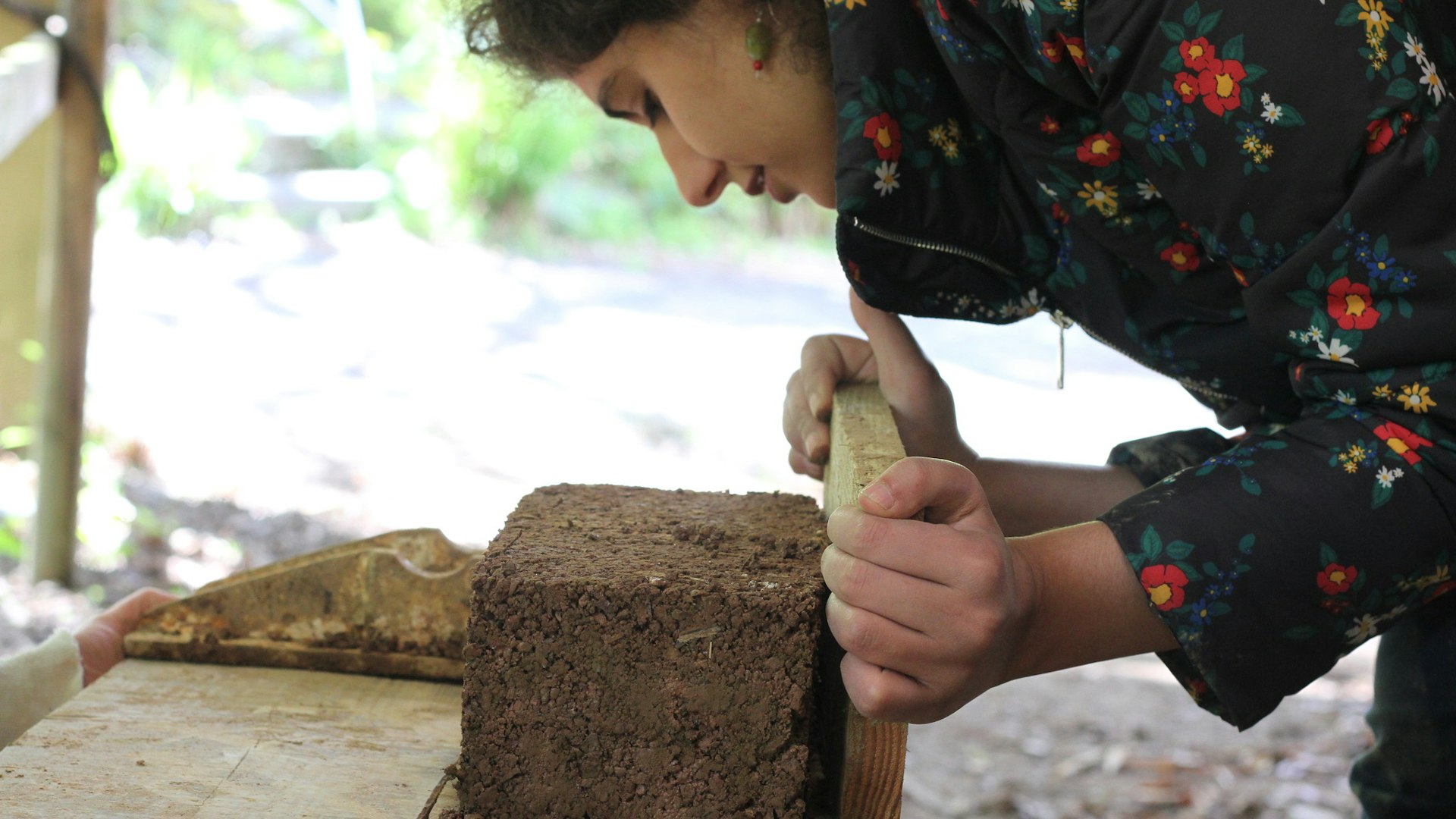
Fees and funding

Entry requirements
We ask for a Bachelor’s degree or knowledge and skills equivalent to degree standard.
IELTS 6.5 (or equivalent) is required for applicants whose first language is not English.
Why study at CAT?
Benefit from 50 years’ sustainability experience
CAT is a world-leading eco centre and a pioneer in researching and teaching practical solutions for sustainability, with five decades experience in low-impact building, energy efficiency, renewable energy, sustainable food production, natural resource management and more.
Immersive or distance learning
Students can decide whether they want to study a module on-site or via distance learning.
Our taught modules offer an immersive learning experience through lectures, talks, seminars and workshops delivered by our expert in-house staff, with specialist insights from visiting lecturers from industry and academia. Practical sessions during on-site study visits at CAT, allow you to get hands-on with sustainable building materials, ecological assessments and energy efficiency.
Many modules are shared with our other postgraduate courses, providing you with a rich learning experience. Our teaching resources are available through Microsoft Teams for students taking the module by distance learning and on-site, creating a space for students to interact and share ideas and expertise, adding to the immersive learning environment
Flexible study options
Courses can also be studied full or part-time, and our course structure allows you to choose the mode and level of study that suits you, helping you fit your studies around your life and existing commitments.
Full-time study at MSc level will allow you to complete the course in 18 months. Part-time study at MSc level will allow you to complete the course over a recommended three years.
Interested in studying this course? Join us for our next open day, contact us for more information or apply today.
This course is created and delivered by CAT and is validated by the University of East London.


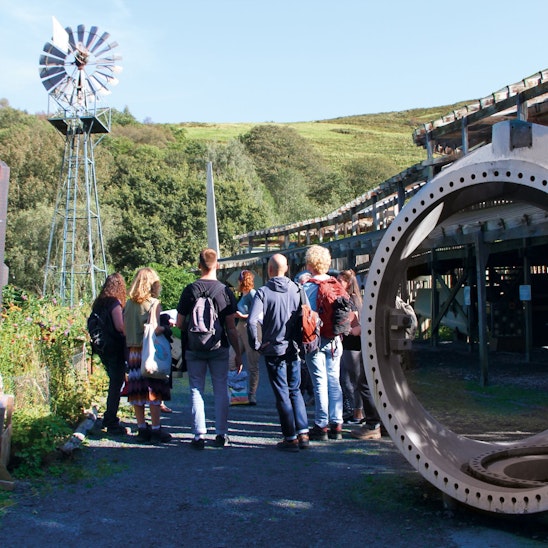
Open Day
Join Graduate School staff on a Graduate School Open Day to find out more about studying one of our postgraduate courses.
Learn more about studying at CAT


Career Pathways

International
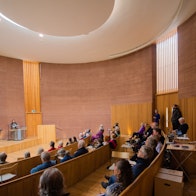
Facilities and Location

Distance Learning
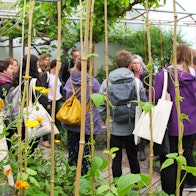
Open Days and Events
Apply now
Apply for our 2025 entry to study on our MSc in Green Building.
Due to high interest we recommend you apply early as we consider applications on a first-come first-served basis. If you have further questions or need support with your application then do get in touch.
